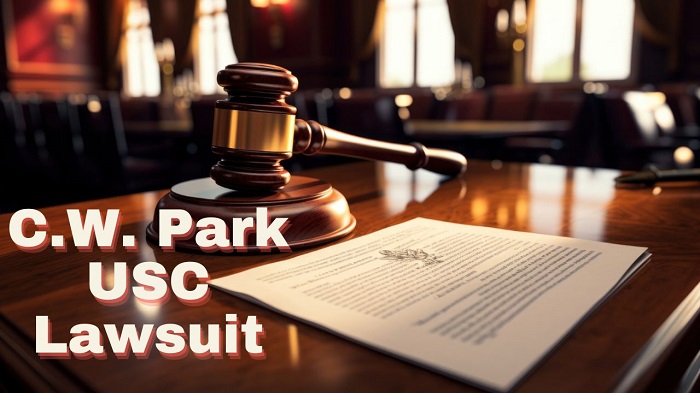Unpacking the Impact: The C.W. Park USC Lawsuit and Its Implications
In recent discussions surrounding accountability and responsibility within higher education, the ongoing C.W. Park USC lawsuit stands out as a pivotal legal case with far-reaching implications. This judicial action not only captivates the attention of those directly involved with USC but also demands scrutiny from stakeholders across the broader academic community. As developments unfold, it becomes increasingly clear that this case is more than a legal dispute; it is a catalyst for examining institutional policies, public perceptions, and the very fabric of educational integrity.
Understanding the Case
The C.W. Park lawsuit centers around allegations that have sparked intense scrutiny and debate within and beyond the USC community. At its core, the lawsuit raises questions about ethical standards, governance practices, and the responsibilities of educational institutions towards their students and faculty. It underscores the critical importance of transparency and accountability in maintaining trust and credibility within academia.
Broader Implications
Beyond the courtroom drama, the repercussions of the C.W. Park lawsuit reverberate throughout the educational landscape. Policies governing student welfare, faculty conduct, and institutional governance are under heightened scrutiny. This case serves as a stark reminder of the need for robust mechanisms to address grievances and uphold ethical standards in educational settings.
Impact on Educational Institutions
Institutions of higher learning are not just places of academic pursuit; they are also responsible for shaping future leaders and professionals. The outcome of the C.W. Park lawsuit could influence how universities across the country approach issues of transparency, accountability, and student rights. It prompts institutions to reevaluate their policies and practices to ensure they align with ethical and legal expectations.
Public Perception and Trust
The handling of the C.W. Park lawsuit also shapes public perception of USC and similar institutions. Stakeholders, including current and prospective students, alumni, donors, and the general public, closely monitor how universities address allegations of misconduct and uphold their commitments to integrity. Maintaining trust is paramount for institutions navigating such legal challenges.
Lessons Learned and Moving Forward
As the legal proceedings continue, there are valuable lessons to be learned for all parties involved. Educational institutions must prioritize transparency and responsiveness in addressing allegations of wrongdoing. Students and faculty members alike benefit from clear policies that protect their rights and ensure a safe learning environment. The ongoing dialogue spurred by the C.W. Park lawsuit underscores the importance of continuous improvement in governance and accountability measures within academia.
Conclusion
The C.W. Park USC lawsuit is not just a legal matter; it is a lens through which we examine the broader issues of accountability, governance, and ethical responsibility in higher education. As the case evolves, it serves as a reminder that educational institutions must remain committed to transparency and fairness to uphold their roles as pillars of knowledge and integrity. By staying informed and engaged, stakeholders can contribute to shaping a more accountable and resilient educational system for future generations.
Get the latest scoop by visiting mainguestpost.com often!




